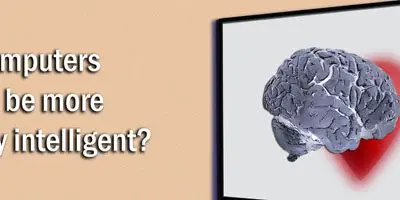Emotionally Intelligent Computers Will Help Us How?
Posted on05 Feb 2015
Tagstraining, Wall Street Journal, Raffi Khatchadourian, Motherboard, Meghan Neal, facial recognition software, Evelyn Rusli, Elizabeth Dwoskin, clickbait, big data, emotional triggers, The New Yorker, technology, retailing, leadership, internet, emotions, emotional intelligence, customers, organizational culture, computers
Comments4
As we make computers more human, we learn more about us. This has already changed how we see our skills, talents and... Read More
The “Big Three” Time Wasters in Business
Posted on28 Aug 2014
TagsThe Economist, Bain & Company, meetings, Bloomberg Businessweek, time, documentation, technology, McKinsey & Company, management, Harvard Business Review, email, efficiencies
Comments5
The big three time wasters in business are emails, meetings and white tape, companies’ internal bureaucracies. All three aren’t new to most;... Read More
Software Softening Our Brains?
Posted on31 Mar 2014
Tagsproblem solving, information technology, computers, brain, technology, smart phones, flying, planes, apps, GPS, Intuit's, accounting, Nicholas Carr, software, brain exercising, The Atlantic
Comments4
Quick, by hand, calculate: 186 x 3,086 = ? 196,452 ÷ 2,568 = ? Why? For the same reason we exercise. Modern... Read More
Why Problems Occur (Alert #7): One over Many
Given many causes of a problem, humans tend to focus on one as the cause rather than the pattern they produce, a... Read More
Your Brain, the Final Frontier
Posted on08 Apr 2013
Tagsbehavioral economics, biology, brain, conditionality, context, emotions, free will, genetic code, humans, knowledge, management, Management by objective, rational actor theory, Star Trek, technology, The Economist, Brain Mapping Analogy, American Association for the Advancement of Science, Human Genome Project
Comments0
“Space, the final frontier” introduced Star Trek’s original series, but assessments of our human knowledge indicate that the space between our ears... Read More
Emotions and Intuition as Foundation of All Decisions
Posted on25 Feb 2013
Tagsbrain, decision-making process, decisions, emotional intelligence, emotions, empathy, Harvard Business Review, intuition, logic, motivation, rationale, reason, research methodologies, strategy, technology, The Economist, Foundation & Frame Analogy, Roderick Gilkey, Ricardo Caceda, Clinton Kilts
Comments2
One of the more contrarian perspectives that has helped me appreciate people’s decisions is that emotions and its interpretive big sister, intuition,... Read More
Mobile Workforce: Less “Face Time,” Less Advancement
One day long ago, I was working late for an employer when the President walked into the department and commented, “You’re working... Read More
Creative Innovation (Pt 10): Information & Interruptions
Posted on05 Nov 2012
TagsCreative Innovation Series, creativity, decisions, education, information, Information Diet, innovation, knowledge, multi-tasking, power, risk, technology, The Atlantic, The Economist
Comments0
Today, we have expansive, quick access to information. Moreover, we have sophisticated reminders of communications we receive and the tasks to do,... Read More
Our Personalities: Crashing Others’ Expectations
As computers and robots are able to perform more of the mental and physical tasks of humans, we are finding they can... Read More
Plug ‘n Play Employees: Not Enough Qualified People
Posted on13 Sep 2012
Tagsemployees, information technology, James Surowiecki, Peter Cappelli, pigeonholing, skills, Talent, technology, The New Yorker, training, Wharton
Comments0
How many times have employers exclaimed, “It’s so difficult to find qualified people”? Well, James Surowiecki’s article, “Mind the Gap” (The New... Read More


